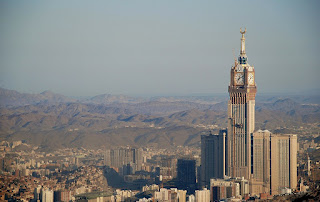Since perhaps bottoming out in February 2016 -- a period
where the price of crude fell more than 70 percent from its peak -- prices have
increased more than 45 percent. Many attribute this spike to three important
events: first, the supply outages in Iraq, the United Arab Emirates and Nigeria;
second, indications of a drop in non-OPEC production; and third, Iran’s as-yet unfulfilled
pledge to flood the market with oil.
Financial Firms Weigh In on the Future of Oil Prices
The current situation has invited
additional inquiry and scrutiny. Some financial firms, including Morgan
Stanley, believe that the price of oil had bottomed out and is now in the midst
of recovery. The bank states, “Oil prices now seem to have bottomed, even though
they are likely to stay subdued for the rest of this year before starting to
move higher in 2017.”
Other organizations, such as the
International Energy Agency (IEA), credit the rebound to a decrease in non-OPEC
produced oil, particularly of U.S. domestic production, which reached its
lowest point since December of 2009. The IEA also believes that oil prices have
bottomed out and should continue to rally.
Many analysts do not agree with the
assumptions and predictions of Morgan Stanley, the IEA and others, citing that
increased prices will once again lead to ramp up production. “My concern is if
the market surges right back to $50 a barrel…we just end up with another
problem six months from now,” said one head of research at Goldman Sachs Group.
“You’d be taking a lot of risk entering this market early.”
The Impact of the Commodities Market and Other Factors
An interesting trend of note is that
several commodities have undergone a price spike -- copper, gold, and iron ore,
cocoa, and lean hogs among them. This rise in the price of many other
commodities raises another question: is the price increase a temporary benefit,
a by-product from a widespread drop in commodities production? History has
demonstrated that the commodities market is especially prone to overproduction
following a price surge.
The answer to the oil price question may
depend on other important factors. For instance, many who are bullish about oil
prices don’t appear to account for the supply outages -- outages that occurred
in countries that are the 6th-, 8th-, and 13th-highest producers of the world’s
oil. These widespread outages almost certainly had a measurable impact on oil
production and affected global oil prices to a degree.
Another important factor is the
unpredictability of Iran’s oil supply. As of late February, the country was --
and still is -- adamant that it will continue ahead with aggressive production.
Iran is the world’s 7th-leading producer of the world’s oil supply and is eager
to reclaim its standing in the world oil market.
OPEC’s Proposed Production Freeze
The proposal put forth by some OPEC
member countries to freeze production appears bleak. Any robust plan to
decrease oil production was bound to be met by resistance from other member
countries, and indeed it was. For one, Iran reemphasized its plans to
significantly boost production despite any proposed plan.
Saudi Arabia also doesn’t appear to be
taking any measured steps to reduce or freeze output: “Saudis want the price of
oil to be low so that they can knock out the Americans,” said Gal Luft, senior
advisor of the United States Energy Security Council (USESC). This is a
potentially significant development, as Saudi Arabia is the world’s
second-leading producer of crude oil.
Luft continued with his criticism of the
proposal: “The Russians want it [the price of oil] to be high. I don’t see that
there is a middle ground, between those that want high and those who want lows.
I think (the March 20 meeting) will be a talk for the sake of talk, but nothing
concrete will come out of it.”
Furthermore, economists continue to
remain apprehensive about plans to freeze production, instead stating that a reduction
in oil production is the only noteworthy action to stabilize the price of oil.
Such economists also believe that the recent spike in oil prices is due to rare
and unforeseen circumstances, not a measured and deliberate effort to freeze
production.
Stakeholder Response and Future Developments
Stakeholders in the oil market -- investors,
executives, workers, and national leaders -- are traditionally quite
reactionary when oil prices suddenly swing in either a positive or negative
direction. All things considered, it is very difficult, if not impossible, to
predict the short- and long-term trends of oil production and oil prices.
Taking into
account the turbulent nature of the world’s oil politicking, the degree of
difficulty in making such predictions heightens. The uncertainty surrounding
Iran, Iraq, Saudi Arabia, and Russia alone are enough to warrant caution about
making reactionary decisions and predictions.
Regardless of how oil prices end up
fluctuating in the coming months and into 2017, stakeholders would be wise to
thoroughly consider events as they unfold in oil-producing countries around the
world. Such events may not only predict the sustainability of short-term oil
prices, but the long-term sustainability of the entire oil market.





